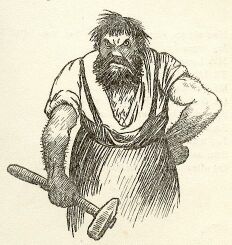Ljupka is a Croatian and Macedonian female given name.
Those with the name include:
Zlatan is a male given name of Slavic origin meaning Golden. The name is common amongst all South Slavic countries, namely in Bosnia and Herzegovina, Bulgaria, Croatia, North Macedonia and Serbia. The name is found in particularly high frequencies in Bosnia because it is considered ethnically neutral amongst the three dominant Bosnian ethnicities: Bosniaks, Serbs and Croats. The name is derived from the South Slavic word zlato - from the Old Slavic root zolto (gold).
Petrović is a South Slavic language patronymic surname literally meaning Peter's son, equivalent to the English last name of Peterson. In Eastern Slavic naming customs its counterpart is "Petrovich".
Pavle is a Serbian, Macedonian, and Georgian male given name corresponding to English Paul; the name is of biblical origin.
Stevo is a masculine given name and nickname, and a surname.
Zoran is a common South Slavic name, the masculine form of Zora, which means dawn, daybreak. The name is especially common in Serbia, North Macedonia, Croatia and to some degree in Slovenia.
Ribar is both a surname and a given name. As a surname, in Croatian, Macedonian, and Bulgarian languages it literally means "fisherman".

Nikola is a given name which, like Nicholas, is a version of the Greek Nikolaos (Νικόλαος) and it means "the winner of the people". It is common as a masculine given name in the South Slavic countries, while in West Slavic countries it is primarily found as a feminine given name. There is a wide variety of male diminutives of the name, examples including: Niko, Nikolica, Nidžo, Nikolče, Nikša, Nikica, Nikulitsa, Nino, Kole, Kolyo, Kolyu.
Tomislav is a Slavic masculine given name, that is widespread amongst the South Slavs.
Reka may refer to:
Zlata is a female given name of South Slavic origin meaning "golden". It is common amongst all South Slavic countries in the Balkans, such as Bosnia and Herzegovina, Bulgaria, Croatia, North Macedonia and Serbia. The name is popular in Bosnia because it is considered ethnically neutral amongst the three dominant Bosnian ethnicities: Bosniaks, Serbs and Croats. The name is derived from the South Slavic word zlato - from the Old Slavic root zolto (gold).

Macedonians in Croatia refers to the group of ethnic Macedonians who reside in Croatia. According to the official census of 2011, there are 4,138 ethnic Macedonians in Croatia.
Krsto, also Krste or Krǎstyo is a South Slavic masculine given name.
Vlatko is a masculine given name of South Slavic origin.
Vučić is a South Slavic surname.
Dragan is a popular South Slavic masculine given name derived from the common Slavic element drag meaning "dear, beloved". The feminine form is Dragana.
Dragica is a South Slavic feminine given name.
Ilija is a South Slavic male given name, cognate of Ilya/Elijah.

Kovačev is a Croatian, Serbian and Macedonian surname. Notable people with the surname include:
Ljupka Dimitrovska was a Macedonian-born Croatian singer. Internationally, she was best known for "Adio," written by Nikica Kalogjera and Ivica Krajač, which won the first prize at the 1970 Athens pop song festival. She died in Zagreb, aged 70.
Ljuba is a Slavic given name. In the Serbian language, it is best known as a masculine name, cognate to Ljubomir or Ljubo. In other Slavic languages it's more often a feminine name, cognate to Lyubov, and also spelled Lyuba, Luba, Ľuba (Slovak).